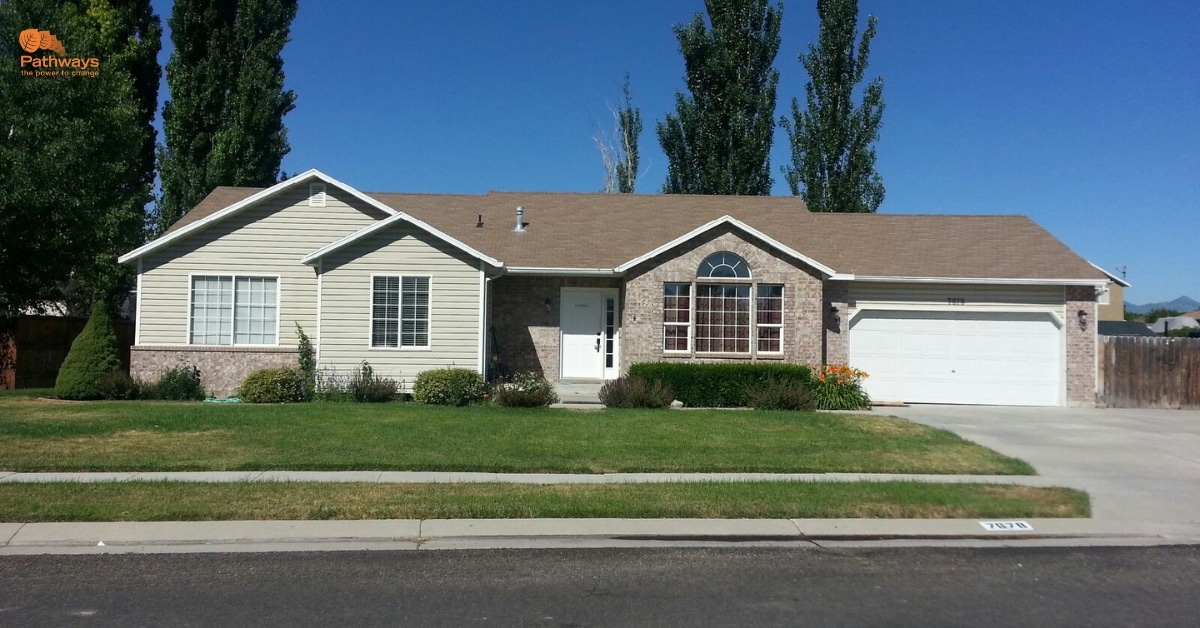Addiction casts a long shadow, but even in the darkest times, hope can be found. At Pathways Real Life Recovery, we illuminate the path forward, offering comprehensive drug and alcohol rehab right here in Utah.


Addiction casts a long shadow, but even in the darkest times, hope can be found. At Pathways Real Life Recovery, we illuminate the path forward, offering comprehensive drug and alcohol rehab right here in Utah.

With each New Year comes the opportunity for a fresh start, and 2024 is no different. If you or a loved one struggles with alcohol addiction, Pathways Real Life Recovery in Utah offers the chance to begin anew with our rehab for alcoholics.

Recovery is a journey, each step bringing you closer to a life of resilience and sobriety. A crucial part of this journey is finding a supportive environment that fosters your ongoing healing. At Pathways Real Life Recovery, we offer that through our sober living houses in Utah.

December, a time of reflection and renewal, brings a fresh opportunity to take control of your life. At Pathways Real Life Recovery in Utah, we're committed to helping you transform this season into a stepping stone towards a healthier, brighter future.

Alcohol addiction can feel like being stuck in a maze with no apparent exit. But there's always a way out, and recognizing the need for help is the first step towards finding it. If you or a loved one is struggling with alcohol addiction in Utah, Pathways offers a proven route to recovery: our inpatient alcohol rehab program.

Overcoming drug addiction is a journey fraught with challenges, but nobody should ever have to traverse this path alone. If you or a loved one are struggling with addiction in Utah, finding a supportive outpatient drug rehab center can make all the difference. At Pathways Real Life Recovery, we believe in the transformative power of community and personalized care.

Autumn is a season of transformation, as the world around us prepares for the rigors of winter. This powerful, natural shift can be a poignant reminder of change's necessity, especially when battling addiction. If you're struggling with addiction or mental health issues in Utah, consider this your season to transform. Let the journey begin in one of our inpatient rehabs.

As the vibrant colors of autumn fade, and the excitement of summer becomes a distant memory, many of us may begin to experience the so-called "October Blues." For some, this seasonal shift can exacerbate struggles with addiction and mental health issues, casting a long shadow over what should be a time of harvest and thanksgiving. If you're battling these blues in Utah, remember that you're not alone - help is available.

Struggling with addiction or mental health issues often feels like being lost in a storm, with no compass. If you're dealing with these issues in Utah, you're not alone. There's a beacon of hope ready to guide you through to safer shores.

Overcoming alcohol addiction can feel like attempting to climb a mountain without the right gear. The path feels steep, the air thin, and the top seems unattainable. But, suppose you reside in Utah and are fighting this battle. In that case, you don't have to undertake this climb alone—Pathways Real Life Recovery offers you the essential 'gear' through its transformative outpatient alcohol treatment.

Addiction casts a long shadow, but even in the darkest times, hope can be found. At Pathways Real Life Recovery, we illuminate the path forward, offering comprehensive drug and alcohol rehab right here in Utah.

With each New Year comes the opportunity for a fresh start, and 2024 is no different. If you or a loved one struggles with alcohol addiction, Pathways Real Life Recovery in Utah offers the chance to begin anew with our rehab for alcoholics.

Recovery is a journey, each step bringing you closer to a life of resilience and sobriety. A crucial part of this journey is finding a supportive environment that fosters your ongoing healing. At Pathways Real Life Recovery, we offer that through our sober living houses in Utah.

December, a time of reflection and renewal, brings a fresh opportunity to take control of your life. At Pathways Real Life Recovery in Utah, we're committed to helping you transform this season into a stepping stone towards a healthier, brighter future.

Alcohol addiction can feel like being stuck in a maze with no apparent exit. But there's always a way out, and recognizing the need for help is the first step towards finding it. If you or a loved one is struggling with alcohol addiction in Utah, Pathways offers a proven route to recovery: our inpatient alcohol rehab program.

Overcoming drug addiction is a journey fraught with challenges, but nobody should ever have to traverse this path alone. If you or a loved one are struggling with addiction in Utah, finding a supportive outpatient drug rehab center can make all the difference. At Pathways Real Life Recovery, we believe in the transformative power of community and personalized care.

Autumn is a season of transformation, as the world around us prepares for the rigors of winter. This powerful, natural shift can be a poignant reminder of change's necessity, especially when battling addiction. If you're struggling with addiction or mental health issues in Utah, consider this your season to transform. Let the journey begin in one of our inpatient rehabs.

As the vibrant colors of autumn fade, and the excitement of summer becomes a distant memory, many of us may begin to experience the so-called "October Blues." For some, this seasonal shift can exacerbate struggles with addiction and mental health issues, casting a long shadow over what should be a time of harvest and thanksgiving. If you're battling these blues in Utah, remember that you're not alone - help is available.

Struggling with addiction or mental health issues often feels like being lost in a storm, with no compass. If you're dealing with these issues in Utah, you're not alone. There's a beacon of hope ready to guide you through to safer shores.

Overcoming alcohol addiction can feel like attempting to climb a mountain without the right gear. The path feels steep, the air thin, and the top seems unattainable. But, suppose you reside in Utah and are fighting this battle. In that case, you don't have to undertake this climb alone—Pathways Real Life Recovery offers you the essential 'gear' through its transformative outpatient alcohol treatment.
Complete This Contact Form
or Call (801) 895-3006
To Schedule a Free Assessment
"*" indicates required fields
Pathways Real Life Recovery
230 W Towne Ridge Pkwy
Suite 150
Sandy, UT 84070
Phone: 801.509.9442
Email info@pathwaysreallife.com